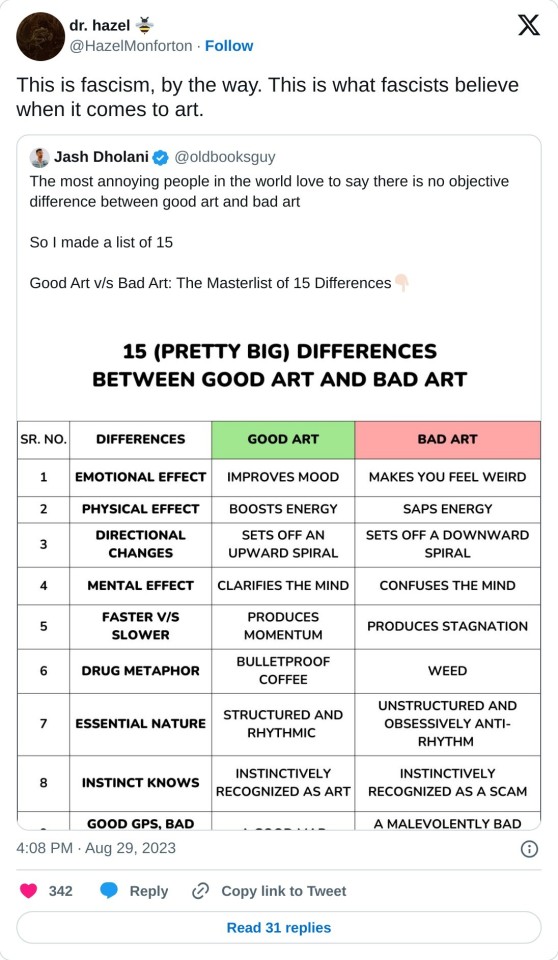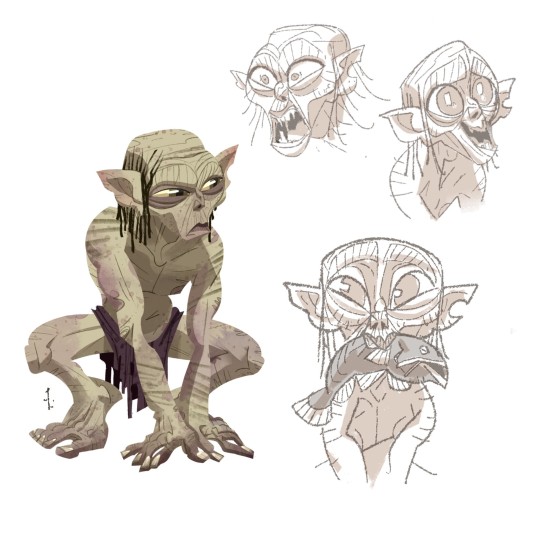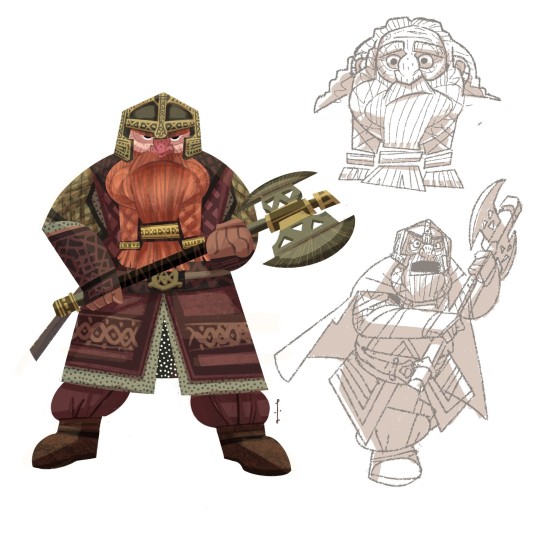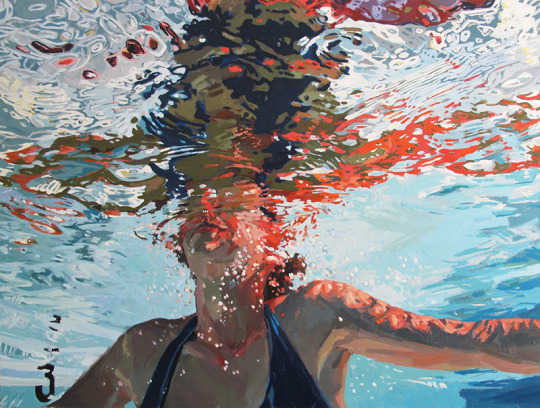Text



cat illustrations portraying a day in the mossy autumn forest
commission of lovely @/kiki_siber on ig <3
! do not reupload/repost my art anywhere !
33K notes
·
View notes
Text
sorr- (remembers that thanking instead of apologizing is healthier for you and your relationships) thank you for allowing me to prematurely ejaculate on your couch
52K notes
·
View notes
Text
music is so fun. is anyone aware of this yet
84 notes
·
View notes
Text


Tag yourself as this list of “bad art” features, according to a twitter fascist
100K notes
·
View notes
Photo









Lord of the Rings character studies by Lorenzo Colangeli
24K notes
·
View notes
Note
Sorry to ask something somewhat related to the recent discourse, but do you have any advice to someone trying to teach themselves lit analysis or lit theory? Seems like most online advice ends at "get an English degree lol"
first of all sorry for leaving this for so long, between work and various other Demands in my life i didn’t really have the time/energy to sit down and write up a proper answer for a while. anyway: imo, what’s more important than working your way through a long list of critical theory is honing an ability to respond to a text yourself; being able to take notice of your emotional responses, being able to ask questions about what the text does and what it responds to and whether you think it succeeds or fails. questions like ‘what is the text about?’ are often too vague, and assume that critical practice is a task limited to investigating the ‘correct’ metaphysical properties of a text that we have to uncover, as well as presenting literature as wholly utilitarian (under this framework, a text becomes a vehicle for a ‘theme,’ and nothing more.) in the list below, i’ve tried to be a little more precise about the kinds of questions that can help you become a more confident + critical reader.
[disclaimer: i am not any kind of expert, i have studied english lit at degree level and i do read a lot / make a habit of talking about what i read, but i would not consider myself especially ‘qualified’ and nor should you. i’m explaining a process that works for me, not providing a one-size-fits-all solution to the question of analytical methodology.]
the essence of literary practice is that a text has a terrain where it has to be met with, and where it will be accountable to forces that are often beyond its control or beyond its immediate borders, and a terrain where it asks to be met with, and towards which it will attempt to navigate the reader; the reader’s job is to meet with it on both terrains, synthesise them, and respond to them. so, some of the questions you should be asking about a text include:
what is its context? this can mean a lot of things: when and where was it written, and how might the conditions contemporary to its creation be informing the inner working of the text? is it considered part of a particular literary movement; how does it interact with the core characteristics of that movement? does it invoke other works; if so, how does it respond to them? what biographical information about the author might be relevant to the piece? some books will come with an introduction which, if written well, would cover at least the outstanding details on this list; you can also have a look on wikipedia or other such websites to get a feel for the conditions under which the text was created.
how does it respond to this context? rather than assuming a text to be a passive body onto which its external conditions are exerting their unilateral force, we should always understand a text as being in active dialogue with the context that shaped it. what are the questions typically posed within the movement or genre to which it belongs; how does it answer these questions? does it build on its predecessors in any way? if it’s a responsive text (ie. consistently invoking an earlier text), what does it have to say about the text to which it responds; how does it develop or contravene the template from which it was building? how might it be responding to the questions of its time; which paradigms are challenged? which are endorsed, actively or tacitly? what goes unmentioned? i emphasise critical engagement with context so heavily because it’s often where the meat of the text can be found.
what are the conditions which made this text possible? this is a little different to questions about context, which have a far broader scope; this is a question which seeks to treat a text not as a thing that came into existence of its own accord, but as a thing that emerged as a result of a process of material production that depends upon particular conditions. is it a mainstream publishing house, or an indie press, or self-published? how does this affect its authority, or the standard to which we hold it? how does this affect its relationship to narratives of cultural hegemony? what can that tell us about what hegemony can and cannot absorb? this is me being a big marxist about it but i think this question is woefully neglected in literary studies lol
why did the author make the choices that they made? one of the most important things to remember when it comes to literary analysis is that every choice made in a text is deliberate; every choice about what happens, what a character says and does, what a character looks like, how particular characters interact, how scenes and objects and settings are described, what prose style is employed, what word is used in a sentence, etc., is a deliberate choice being made by an external agent (ie. the author, sometimes/arguably also the editor, also the translator if a text is in translation), and those choices are accountable both to the deliberations of the author and the external cultural narratives with which they necessarily enter into a dialogue. ‘why does a character behave in a particular way’ is not a question that invites you to treat the story like a riddle for which you can find an ‘answer,’ but a question that engenders the following: what does their behaviour reveal about the character, and how might this be situated within the discourse of the wider text? does this behaviour reveal any biases on the part of the author? what sort of expectations does this behaviour establish, and are those expectations met or neglected or subverted? the same process can be applied to themes, settings, plot beats - anything, really. why is this particular adjective used - does it have other connotations that the author might want to draw attention to in relation to the object being described? why does this chapter end here and not here? nobody in a novel has agency that extends beyond the boundaries of the novel itself; part of the practice of analysis means discerning which choices were made and why, and whether those choices were good or bad.
what is your response? analysis is a misleading term for this practice; it’s less about dispassionately picking at a text in search of an ‘answer’ and more about evaluation - assessing the text’s successes and failures and cultivating your personal response to it, which means paying attention to your responses as you go along. some people would argue that ‘did you like/dislike this’ is a juvenile question, but i would disagree - knowing whether you liked or disliked something and being able to describe why it evoked that reaction in you is crucial to an evaluative practice. a text can be conceptually excellent, but falter if its prose is clunky or uninspired or unimaginative; being able to notice when a text isn’t engaging you and asking why that is is an important part of this evaluative process. similarly, what do you make of the themes and developments present in the text; does it dissect its themes with precision, or does it make broad gestures towards concepts without ever articulating them fully? is it original? does it have sufficient depth to it? do you agree with it? are you compelled by it? if you were asked the questions that the novel tries to respond to, what would you say; do you think that the novel misses anything out? has it challenged your own perspective? what are its limitations?
literary analysis is a learned skill, but by its nature of being a skill it gets a lot easier over time, and some of these questions will become intuitive. a good way to hone the skill and develop a greater intimacy with a text is through close reading; this refers to the practice of selecting a passage (or even just a sentence) and picking it apart line by line (word by word, even) to describe in intimate detail exactly how the sentence(s) came to be formed in the way that it/they did. i’ll use the first few sentences of daphne du maurier’s rebecca as an example.
Last night I dreamt I went to Manderley again. It seemed to me I stood by the iron gate leading to the drive, and for a while I could not enter, for the way was barred to me. There was a padlock and chain upon the gate. I called in my dream to the lodge-keeper, and had no answer, and peering closer through the rusted spokes of the gate I saw that the lodge was uninhabited.
so a close reading of these sentences might identify:
‘last night i dreamt i went to manderley again’ is in iambic hexameter; this rhythmically satisfying invocation makes for a smooth opening sentence, and contrasts with the longer, more complex sentences that follow on. the change in rhythm through such a contrast helps to maintain momentum throughout the paragraph.
the first sentence also introduces a few key pieces of information - that this story is being told from the first person, that we are opening with a dream (and that the narrative places stock in the significance of dreams), and that the speaker is going to manderley ‘again’ - ie. that this is opening after an event in which manderley was significant. that the speaker going to manderley ‘again’ in a dream holds importance implies an exile from manderley in the ‘real’ world; this already gives us hints at the broader shape of the narrative.
the speaker’s intimacy with manderley and disregard for ‘telling’ the reader what it is (we do not get, like, ‘manderley is a house’ or something - the passage continues as though we know what manderley is already) helps to develop our sense of immersion in the dreamscape. it also sets manderley up as a place of immense significance.
both ‘it seemed to me’ and the later ‘i called’ have a matter-of-factness to them, a certain dry reporting of the events of the dream which, rather than situating the reader within the texture of the dream itself, refortify us as outside of it, listening to it be explained after the fact.
‘for a while i could not enter, for the way was barred to me’ continues the theme of implied exile that the first sentence gestured towards. the iambic trimeter on ‘the way was barred to me’ creates a lilting cadence which, along with the use of the passive voice, detaches the speaker from an emotive response to this being ‘barred’; it is a reported dream that will not consciously acknowledge the speaker’s feelings about being exiled from manderley at this time. (we instead infer these feelings through how the chapter develops.)
‘there was a padlock and chain upon the gate,’ as a short sentence, falls into the same matter-of-fact register as that which i alluded to above, partly through the use of the passive voice, and - as i explained earlier - varies the length of sentences such that the paragraph retains a particular buoyancy.
the development from the speaker calling to the lodge-keeper to not getting an answer to seeing that the lodge is uninhabited tells a story wherein the speaker at first has authority such that a lodge-keeper would respond to her and let her in; this authority is negated by the lack of response; the lodge-keeper is found to be absent in a development that took place whilst she was herself away, presumably in the state of exile that we have inferred her to be in. ‘uninhabited’ is the kind of word you would expect to be used for an area of land, often with a colonial connotation; this introduces a theme that this chapter (& the book as a whole) goes on to develop, of manderley being a site of colonial decay; as reinforced by the ‘rusted spokes.’
in my experience, close reading is a technique best practiced on poetry, but it’s a very helpful skill to develop in general, and implementing it with prose can elucidate the nuances of a text far more clearly than you might initially realise. in a well-written novel, language is very deliberate and precise!
i think the best thing you can do to develop your skills as a critical reader is to read carefully, and to keep track of your responses to a text as best as possible. keeping a note of what you think a text achieves and how you respond to it each time you read one can be a good way of sorting your thoughts into something coherent and developing your ability to articulate a response. anyway, hopefully this has provided something resembling a guide for how to develop the thought processes that go behind critical practice!
562 notes
·
View notes
Photo

Hello! Been a long time since I posted on tumblr, but I’m gonna try it out again :D
I’ll start with this painting of sad Sam and Frodo leaving the Shire that I made a couple weeks ago. I imagine Sam was trying to bring along as much of the Shire with him as him as they were walking further away from their home.
3K notes
·
View notes
Text
it’s over for me i discovered a weather app map layer that shows wind currents worldwide in real time. i just stared at that for so long.
26K notes
·
View notes
Text
they didnt give me a penis because i would be so good at having boners i would literally win every boner compatition and thats why they were tooooo scared
28K notes
·
View notes


















